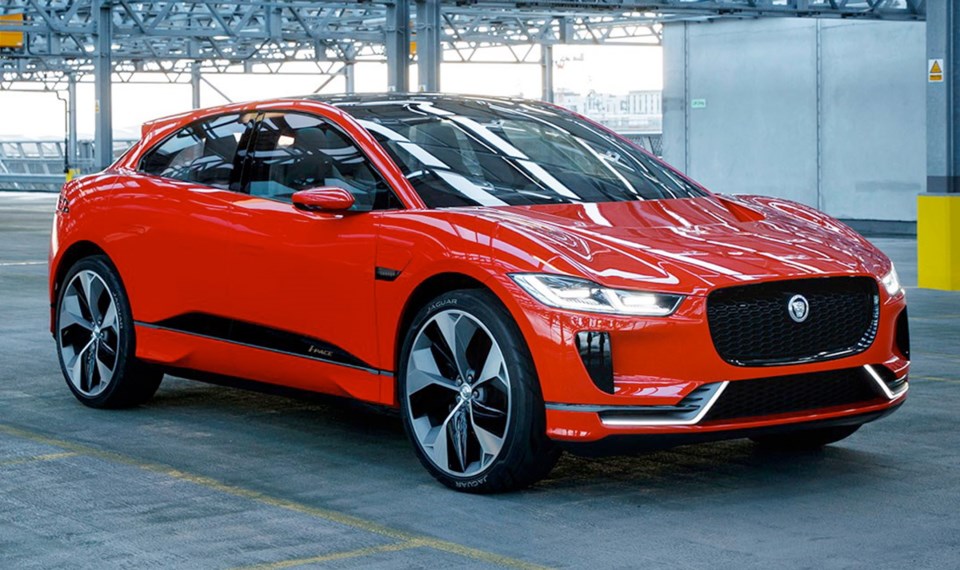The Sleuth has viewed Jaguar’s new all-wheel-drive I-Pace electric hatchback that heads to market this year as a 2019 model, and he’s rather keen on the car’s slinky styling and quasi-practical shape. Forget any notion of tameness as this Jag’s twin electric motors (one for each axle) collectively produce 394 horsepower and 512 pound-feet of torque. According to Jaguar, the I-Pace can sprint to 100 kilometres per hour from rest in 4.5 seconds. The only possible negative could be the 385-kilometre range, which is considered about average for an electric vehicle these days and falls short of the mark set by Tesla. I-Pace pricing starts at $70,500 in the United States, but Canadian pricing will be available soon.
The GMC Sierra will be completely new for 2019
Following the announcement of an all-new Chevrolet Silverado, General Motors’ GMC Sierra pickup will receive similar treatment, but with a more distinctive appearance and features to distance it from its sibling. Chief among them is an optional carbon-fibre cargo bed that’s claimed to be lighter and sturdier than Ford’s highly touted aluminum construction, and eliminates the need for a spray-on or insert-type liner. Buyers can also opt for the MultiPro tailgate that has a full-width step and also an assist handle for easier entry to the cargo box. The MultiPro also has a “load stop” barrier that flips up to keep cargo from sliding out when the tailgate is lowered.
Is the North American International Auto Show going away?
The Sleuth’s sources claim that there are big changes coming for the annual Detroit-based event, including a possible move to October from January. This would likely agree with the thousands of worldwide journalists who endure Detroit’s winter to attend the NAIAS. A date set during a warmer part of the year would also allow exhibitors — car companies — to host outdoor product demonstrations, something that has rarely happened in the past. There’s also talk of changing the name to the Detroit International Auto Show, which seems to make sense. Why the change? The NAIAS has experienced a drop in manufacturer participation in recent years, and increased competition from the annual CES event in Las Vegas, Nevada, just before the NAIAS, is attracting a growing list of automotive exhibitors.
Hyundai takes the Tucson to new heights
In the highly competitive small-utility class, automakers are practically obligated to frequently make over these models. That certainly applies to Hyundai, which, according to the Spymaster’s well-placed sources, will introduce a significantly updated Tucson in 2019 as a 2020 model. Physically, the compact wagon will receive similar sheetmetal to the all-new 2019 Santa Fe that launches later this year. The Tucson’s cabin will also see significant change, including a tablet-style touchscreen perched above (and not within) the dashboard. You can also expect suspension changes aimed at smoothing out the vehicle’s ride. Although there’s no specific word on powertrains, the Tucson’s non-turbo and turbocharged four-cylinder engines are likely to carry over.
Mazda’s rotary engine has a use, but not doing what you think
The Sleuth’s intel reveals plenty of details concerning the automaker’s Wankel-design rotary engine that will return to duty following the retirement of the RX-8 in 2011. The word is that the pistonless powerplant will initially be employed as a non-turbocharged electric power generator for an EV. It would likely launch sometime in 2019. The single-rotor design means the engine will be light, and with a displacement of less than 0.4 of a litre, it will take up little space. Further uses for Mazda’s rotary technology are rumoured to include a sporty coupe of some sort, but that remains to be seen.
Ford’s self-driving pizza delivery vehicles
The Blue Oval automaker has teamed up with the Domino’s pizza chain in Miami, Florida, to test a fleet of autonomous Fusion delivery sedans. To ensure the cars function safely during the trial, a driver will initially come along for the ride.



